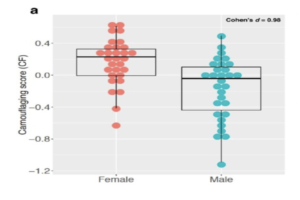
Figure 1: Bandmates join in a group hug. The powerful bond between members of a band is one example of community making friendships stronger. (Image Source: Wikimedia Commons)
According to a recent study, the perceived support individuals receive from family members, friends, and others correlates with how close the individual believes the supporters are with each other. This suggests that greater social support might be a function of communal intimacy rather than of social network volume (Grabmeier, 2020).
David Lee, Joseph Bayer, and Jonathan Stahl of Ohio State University investigated this issue through two online studies involving 339 and 240 participants respectively. In the first study, participants listed eight people who were available for support in the previous six months. Participants then rated separately on a scale of one to seven both how much support each person provided and how close each pairing of the eight listed supporters was. The results of this first study found that denser social networks provided greater support to participants, with “dense” signifying high interconnectivity between supporters (Grabmeier, 2020). However, it must be noted that this connection is considered a positive correlation rather than proof that denser networks cause greater social support (Lee et al., 2020). In the second study, participants generated two groups of four people they could turn to for support. One of the groups was tightly-knit, while members of the other group did not know each other well. Participants were then instructed to imagine that their houses had been broken into, and each participant was randomly directed to think of approaching either the tightly-knit or more distant group for support. The researchers found that participants who had been told to imagine going to the tightly-knit group believed they would receive greater support (Grabmeier, 2020).
Both studies sourced participants solely from Amazon Mechanical Turk (an online crowdsourcing website) and had a majority of Caucasian participants (77.6% for the first study and 80.9% for the second). Roughly 40% of participants were female (Lee et al., 2020). More information is needed before the results can be generalized to the world population as a whole, since participants resided in the U.S. and the studies were relatively lacking in participant diversity. Additionally, the use of Amazon Mechanical Turk may have contributed to a skewed participant pool, as individuals without access to that website or to the necessary technology were unable to contribute. Researchers noted that future studies should place a greater emphasis on naturalistic observation (meaning they should observe spontaneous human behavior in its usual setting) (Lee et al., 2020).
Social support is of great interest to social psychologists because of its ties to mental and physical health. Peer pressure works both ways — just as it can serve to drive individuals to unhealthy habits, it can help encourage people to engage in behaviors that promote health. Evidence suggests that social support can even lessen the impact of mental health conditions like post-traumatic stress disorder. Conversely, a lack of social support has been linked to increased risk of alcohol abuse, heart disease, and suicide (Cherry, 2020). A better understanding of how people perceive social support could be used in the future to develop more effective support systems for those who need it most, such as individuals dealing with grief or struggling with mental illness.
References
Grabmeier, J. (2020). Why some friends make you feel more supported than others: People feel most backed when their network is connected. ScienceDaily. Retrieved October 15, 2020 from www.sciencedaily.com/releases/2020/10/201007085609.htm
Lee, D. S., Stahl, J. L., & Bayer, J. B. (2020). Social Resources as Cognitive Structures: Thinking about a Dense Support Network Increases Perceived Support. Social Psychology Quarterly. Retrieved October 15, 2020 from https://doi.org/10.1177/0190272520939506
Cherry, K. (2020). How Social Support Contributes to Psychological Health. Verywell Mind. Retrieved October 15, 2020 from https://www.verywellmind.com/social-support- for-psychological-health-4119970
Related Posts
New Study Finds that Media Multitasking Impairs Memory in Young Adults
Figure 1: Engaging with multiple types of digital media simultaneously,...
Read MoreHuman Endogenous Retroviruses Might Unlock a New Field of Neurodegenerative Disease Research
Figure 1: Researchers have found viral genetic materials within the...
Read MoreAutism Spectrum Disorder and Gender: The Case for Expanding the Autistic Phenotype
This article was originally submitted to the Modern MD competition...
Read MoreCaroline Conway



